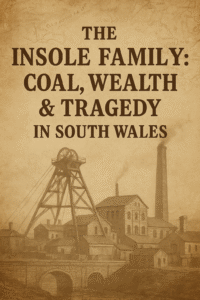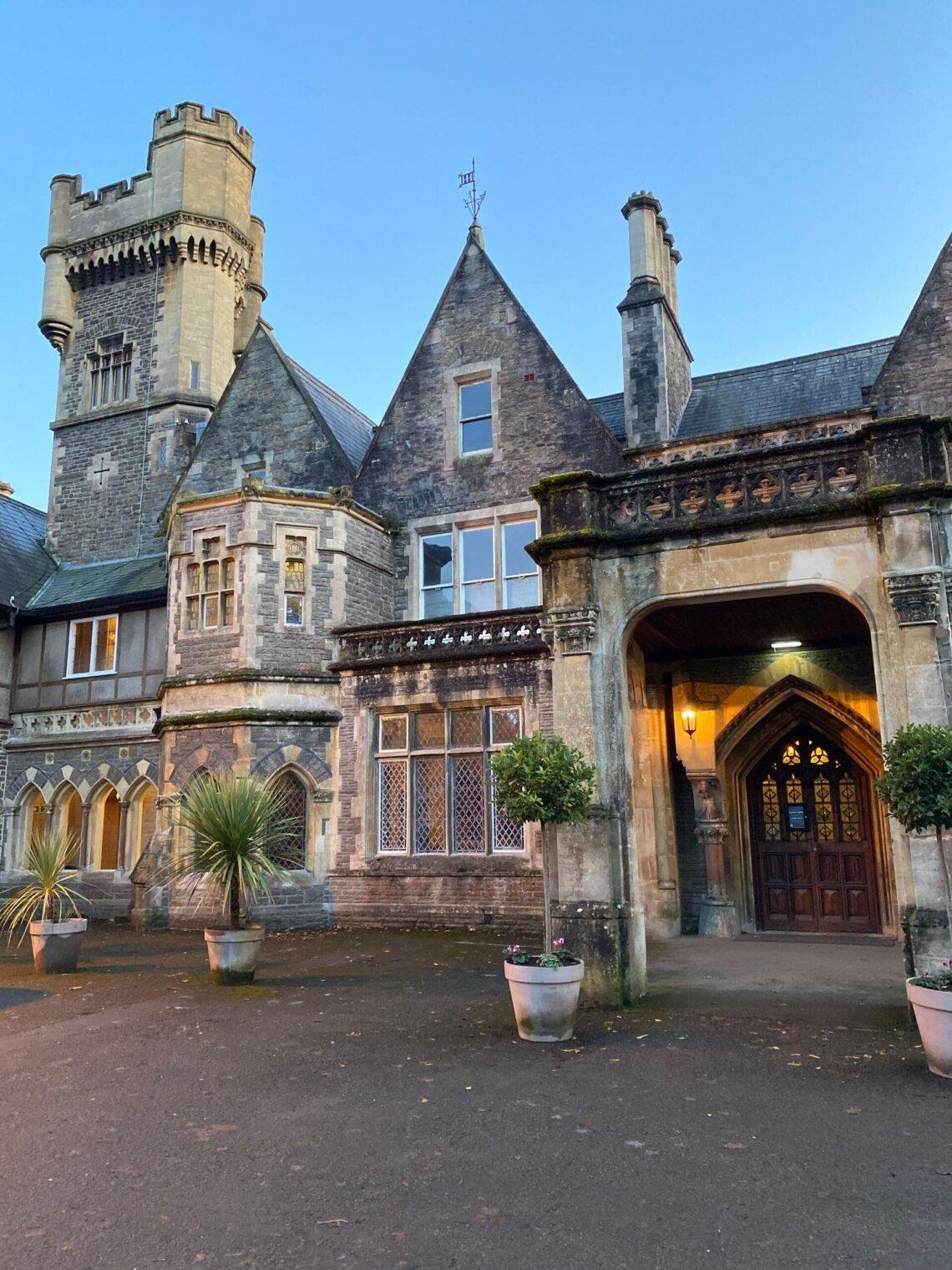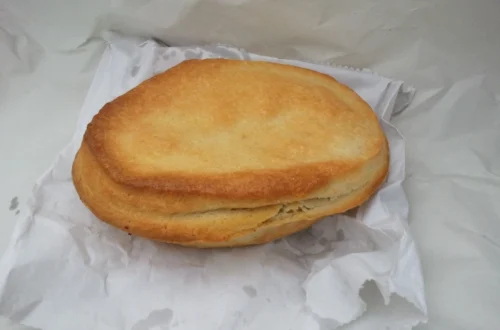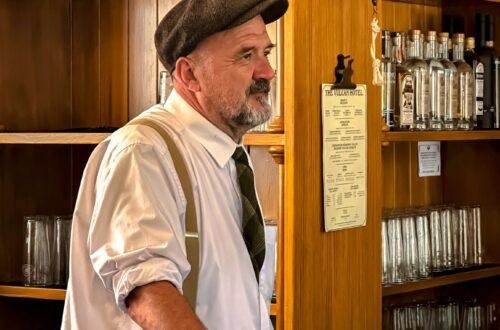The Insole Family: Coal, Wealth and Tragedy.
The Insole family were among the key players in South Wales during the height of the coal boom. Based in Cardiff, they were successful coal owners and industrialists, known for their business ventures, architectural legacy, and ties to both prosperity and hardship. In this blog post, we explore who they were, which collieries they owned, and the impact they left on Wales’ mining landscape.

Who Were the Insoles?
The Insole family’s story begins with George Insole (1790–1851), an ambitious entrepreneur who moved to Cardiff from Worcester. He capitalised on the growing demand for Welsh steam coal by shipping and selling it nationally and internationally. His son, James Harvey Insole (1821–1901), expanded the business empire, investing in mines and infrastructure that would cement their legacy in the Ely Valley and beyond.
Their grand family home, Insole Court in Llandaff, stands today as a testament to their wealth and ambition, now serving as a community heritage site.
Which Pits Did the Insole Family Own?
The Insole family owned or invested in several significant coal operations across Glamorgan, particularly in the Ely Valley and Rhondda. Notable pits included:
– Cymmer Colliery (Old and New Pits)
– Blaen-y-cwm Colliery
– Investments in Tondu and Maesteg mines
– Llantrisant and Ely Valley coalfields
They also heavily supported infrastructure development, including railways and canals, to transport coal from pit to port. This helped establish Cardiff as one of the world’s busiest coal-exporting docks.
Disasters in Their Mines
The most infamous mining disaster associated with their commercial sphere was the Cymmer Colliery explosion in 1856. Although the Insoles were not the direct owners at the time, they were closely tied through sales and investment.
The explosion killed 114 men and boys and exposed serious failures in ventilation and safety. The tragedy became one of the deadliest in Welsh history and brought widespread criticism to the coal industry’s oversight practices.
Did the Family Suffer Personal Tragedies?
While there were no well-documented deaths of Insole family members in the mines, the family was not immune to tragedy. Their fortune began to decline in the early 20th century as the coal industry faced mounting pressures from cheaper competitors and economic instability.
The decline of the South Wales coal trade led to financial hardship for later generations, and Insole Court itself fell into disrepair for decades. The family, once at the heart of Cardiff’s social and economic elite, faded into obscurity by the mid-20th century.
Legacy of the Insoles
Today, the Insoles are remembered not just as coal owners, but as part of the rise and fall of industrial South Wales. Their investments shaped the development of Cardiff, particularly its role in the coal trade. The family’s former home, Insole Court, now restored, serves as a place for public learning and reflection on Cardiff’s rich past.
Their story is a powerful reminder of the wealth built on coal—and the price paid by the communities who worked in the mines that made it possible.
📍 Discover more stories of South Wales coal history at cardiffandvalleysguide.website





